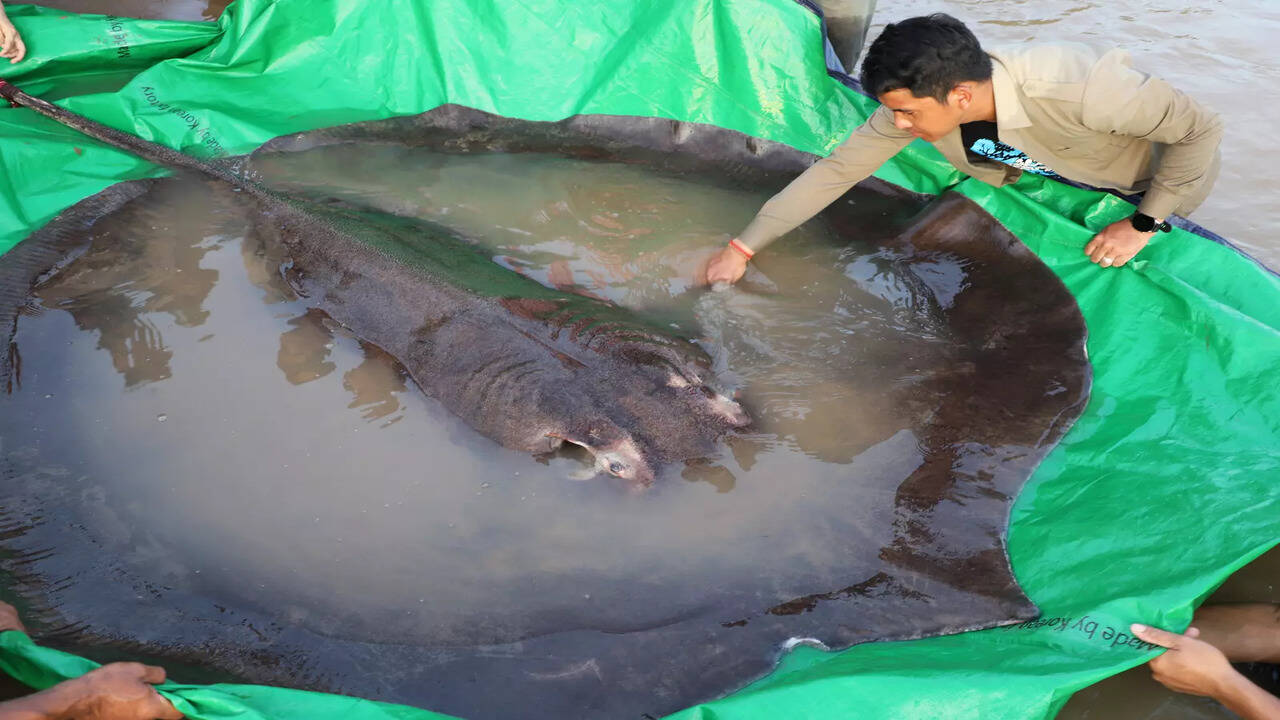Companies Maintain Smolt and Fish Feed Trade with Russia

Table of Contents
Whilst some corporations have picked out to interrupt trade cooperation with Russian businesses, a collection of Norwegian as properly as overseas firms with operations in Norway have opted to keep on trading with Russia.
This applies a.o. to shipowners continuing to ship smolt and fish feed to Russian fish farmers. Neither smolt [young salmon for fish farming] nor fish feed is on the sanctions list from the West subsequent the Russian war on Ukraine.
In preserving with authorities’ recommendations
The two significant fish feed producers, American Cargill and Dutch-owned Skretting, run factories in Norway and are amongst the providers preserving supplies to Russia. Main of Communications for Cargill Norway, Kjartan Mæstad, claims to Higher North News that the business complies with all nationwide and international sanctions. In a assertion, Cargill writes that the corporation is downscaling activities in Russia due to the circumstance in Ukraine. It has also halted investments, and only operates key foods and feed facilities, the latter due to foodstuff offer things to consider.
The problem of continuing delivering smolt and feed to Russia has been protected by the on the internet industry newspaper iLaks, which lately documented that two well-boats from the Norwegian shipowners Rostein had been sailing in Russian waters to provide Russian consumers. The smolt was shipped to the Russian fish farming firm Russian Aquaculture, which operates fish farms in the Kola Peninsula fjords.
Significant North News has spoken with Chair Glen Allan Bradley of Rostein. He refers to an interview with kyst.no in which he stresses that the enterprise has halted getting into into new contracts with Russian prospects, having said that, that it is obligated to continue on sailing to satisfy presently signed agreements.
In the interview, he refers to Norwegian authorities’ seeking cooperation to continue.
“According to authorized solicitors, we are obliged to honor previously signed contracts between smolt suppliers, customers and Rostein as shipping provider”, he claims to kyst.no. It is even more said that if Norway were to introduce sanctions on the Russian producers, equally product sales and shipping and delivery will arrive to an rapid halt.
“That is why this is a political question. Up right up until now, the [Norwegian] authorities have required cooperation to continue on. They have even stressed that so-referred to as ‘private sanctions’ are undesired in fisheries and fish farming”, Bradley claims and adds:
“There may possibly be an over-all evaluation of Norway’s gathered interests that lies guiding this, and we are not acquainted with it. We will all have to loyally adhere to potential changes, which would then have to come in the form of sanctions, liberating suppliers from already signed agreements. So sanctions is what will make a decision this on a short-phrase foundation.”
Superior North Information has frequently contacted the Norwegian Ministry of Trade, Marketplace and Fisheries for opinions, having said that, these repeat tries have been unsuccessful so far.
Argues that freight should be stopped
A person of the people crucial of this activity is editor Aslak Berge of iLaks.no. He argues that maintaining gross sales of smolt, perfectly-boat services, and fish feed even with Russia’s launching an assault war on Ukraine is problematic.
“This praxis is authorized, even so, it is also problematic from an ethical issue of view”, Berge says to Superior North Information.
No smolt production of its own
Two of the main firms working in Northwestern Russia are Russian Aquaculture and Russian Salmon. The former has also acquired two Norwegian smolt services Olden and Villa Smolt.
“Becoming self-provided with salmon has been important for Russia, as salmon is common about there. Production has been substantially ramped up in current several years. On the other hand, the place lacks getting a smolt manufacturing of its own, while a plant for this is beneath building. Nor does Russia have feed manufacturing, although it is creating its very own fish feed factories. They are not much from building potential able of serving its very own production of salmon and trout”, Berge says.
This has to be imported from abroad, and most of it arrives from Norway, he points out.
“This targeted visitors continues now in buy to safe materials. It is obvious that Norwegian actors are tied up in authorized agreements to safe provides, nonetheless, we have found a series of multinational firms also included by legal agreements have canceled these and cut off trade as they look at this problematic”, he adds.
“Continuing materials is an example of running on a small-time period revenue foundation, location morals and ethics aside”, the editor argues.
In a comment to Superior North Information, Bradley of Rostein adds that the company is sure by contracts signed in 2021, with the exact same selling prices the company utilised in Norway previous calendar year. He also stresses that the firm does not enter into new agreements.
Feed freight and bypassing port ban
On 8 May perhaps, a ban on Russian vessels’ getting into Norwegian ports entered into drive in Norway. The ban nonetheless has an exemption for fishing vessels. When it will come to supplying fish feed, Russian feed freight vessels thus no longer have access to Norwegian ports. Berge of iLaks argues that it is extraordinary that Norwegian vessels have taken in excess of these exercise.
“It is plainly a bypassing of the port ban”, he argues.
As for smolt, Russia does not have any large-tech perfectly-boats for freight of dwelling fish, and Norwegian vessels have ordinarily conducted his shipping and delivery, he provides.



